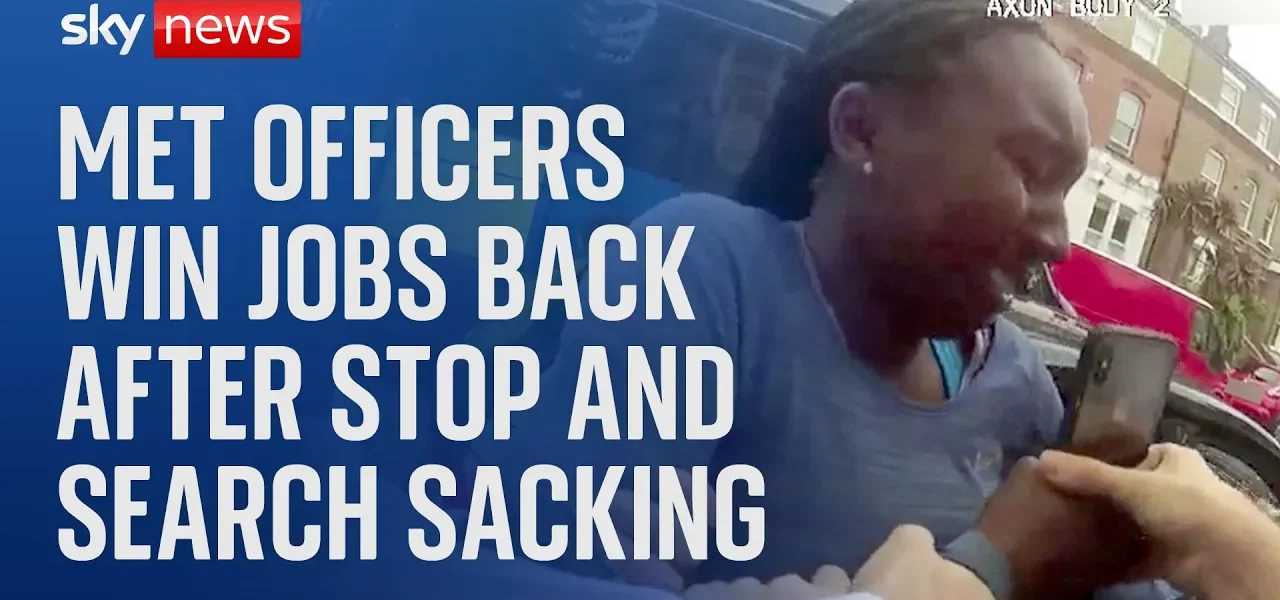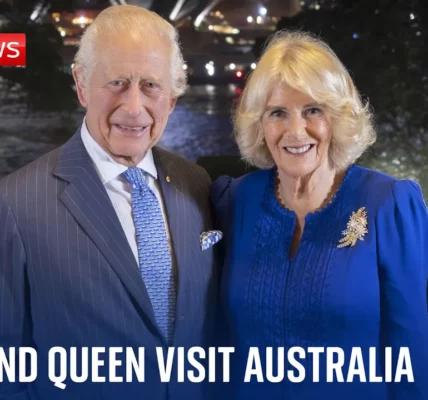Olympic Athletes Ricardo dos Santos and Bianca Williams: A Stop and Search Incident Analysis

This article delves into the controversial stop and search incident involving Olympic athletes Ricardo dos Santos and Bianca Williams, discussing the implications for policing practices in London, racial profiling, and the ongoing debate surrounding stop and search tactics.
Introduction
In 2020, a stop and search operation in West London involving two Olympic athletes, Ricardo dos Santos and Bianca Williams, sparked significant public outcry and debate regarding police practices in the UK. This incident, emblematic of broader issues within law enforcement, has not only led to the dismissal of two Metropolitan Police officers but also reignited discussions around the effectiveness and ethics of stop and search strategies. This article will explore the details of the incident, the subsequent investigations, and the ongoing implications for policing in the capital.
The Incident: A Breakdown of Events
The stop and search of dos Santos and Williams occurred during a routine patrol aimed at addressing rising violent crime in West London. The couple was driving with their infant child when police officers initiated a chase after following their vehicle.
Details of the Stop and Search
- Date of Incident: 2020
- Location: West London
- Individuals Involved: Ricardo dos Santos, Bianca Williams, and their infant child
- Outcome: No weapons or drugs were found
Despite the lack of evidence, the officers claimed to have detected a smell of cannabis, which served as the basis for their search. This assertion was later challenged, leading to a disciplinary panel review.
Consequences for the Officers Involved
Disciplinary Actions
The disciplinary panel concluded that two of the four officers involved in the stop had lied about the circumstances leading to the search. This decision initially led to their dismissal but was later overturned, stating that the officers were merely performing their duties.
Reinstatement of Officers
Following the appeal, both officers were reinstated and awarded back pay. This decision has drawn criticism from various quarters, particularly from dos Santos himself, who emphasized the professional integrity of athletes and the unacceptable nature of the officers’ actions.
The Broader Implications of Stop and Search
Statistics on Stop and Search
The incident involving dos Santos and Williams is part of a larger pattern in policing. In the previous year, police in England and Wales conducted approximately 547,000 stop and searches, yet only 14% resulted in an arrest. This statistic raises questions about the efficacy of such tactics in preventing crime.
Criticism of Stop and Search Practices
Campaigners argue that the current stop and search policies are ineffective and disproportionately target minority communities. Key points of criticism include:
- High number of searches with low arrest rates
- Lack of evidence supporting the need for frequent stop and searches
- Perception of racial profiling, particularly among Black communities
- Psychological impact on individuals subjected to unjust stops
Public Response and Ongoing Debate
The stop and search incident involving dos Santos and Williams has reignited public discourse on policing practices in London. Many community leaders and activists are calling for reforms to ensure fair and just treatment for all individuals, regardless of race or background.
Calls for Reform
- Transparency in stop and search protocols
- Regular reviews of police practices and their impact on communities
- Enhanced training for officers on racial bias and community engagement
As the debate continues, many are advocating for a reevaluation of stop and search tactics, with an emphasis on community trust and safety.
Conclusion
The stop and search incident involving Olympic athletes Ricardo dos Santos and Bianca Williams serves as a crucial case study in the ongoing conversation about policing, racial profiling, and community relations in London. While the reinstatement of the officers involved may provide closure to some, it has only intensified the calls for meaningful reform in policing practices. As this debate unfolds, it is vital for communities and law enforcement to work together to build trust and ensure that all individuals are treated with dignity and respect. We encourage readers to engage in this conversation and advocate for change in their communities.
“`




